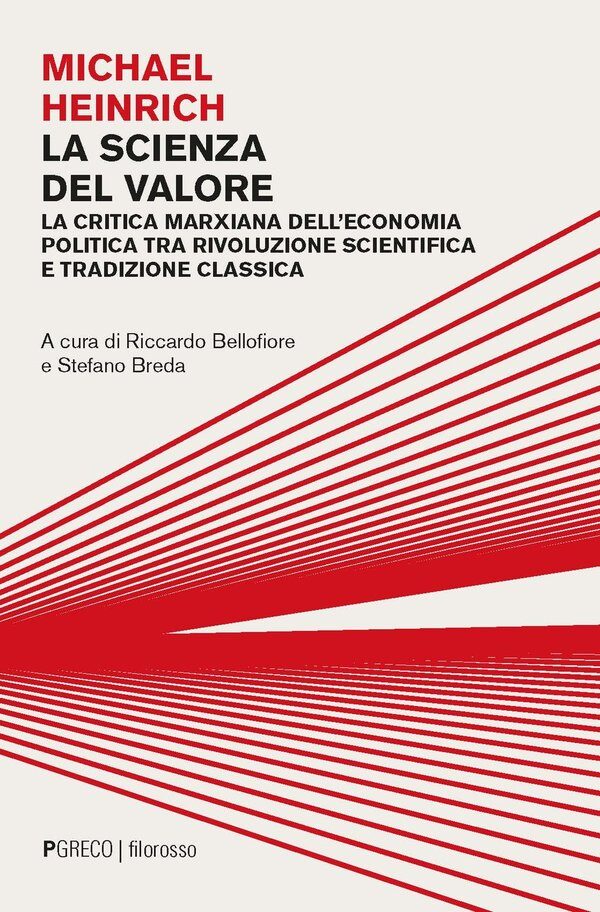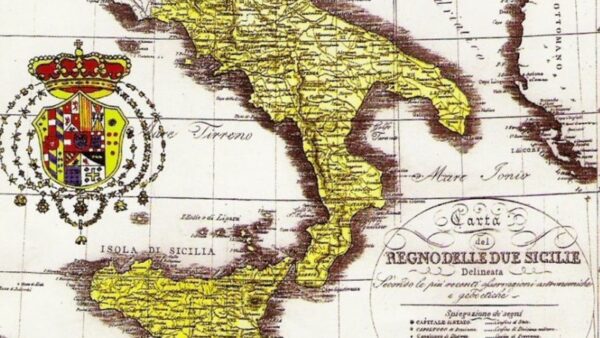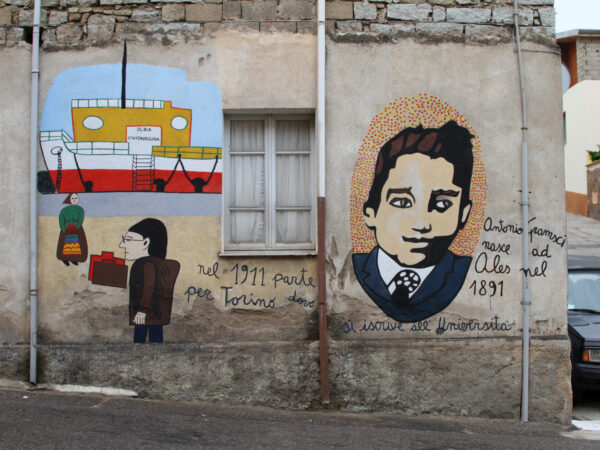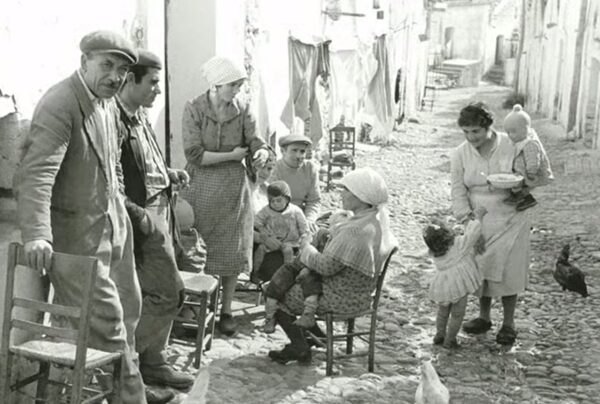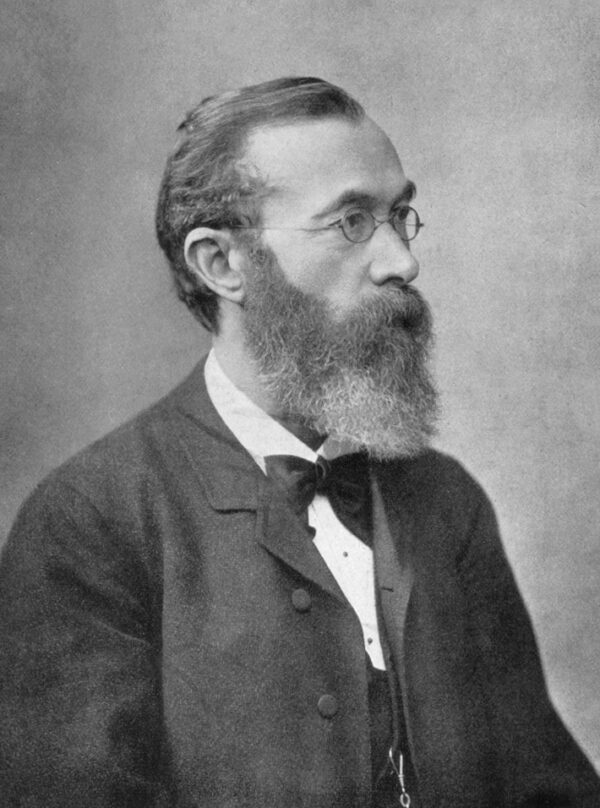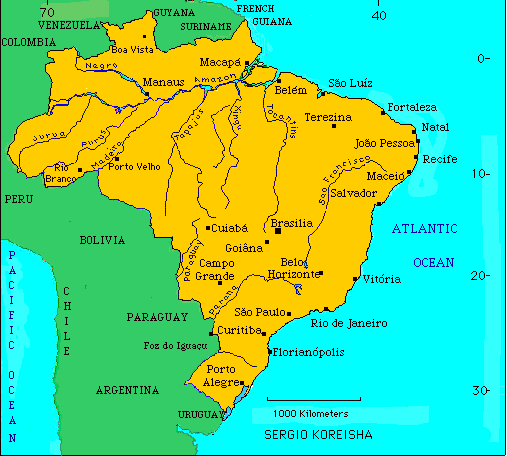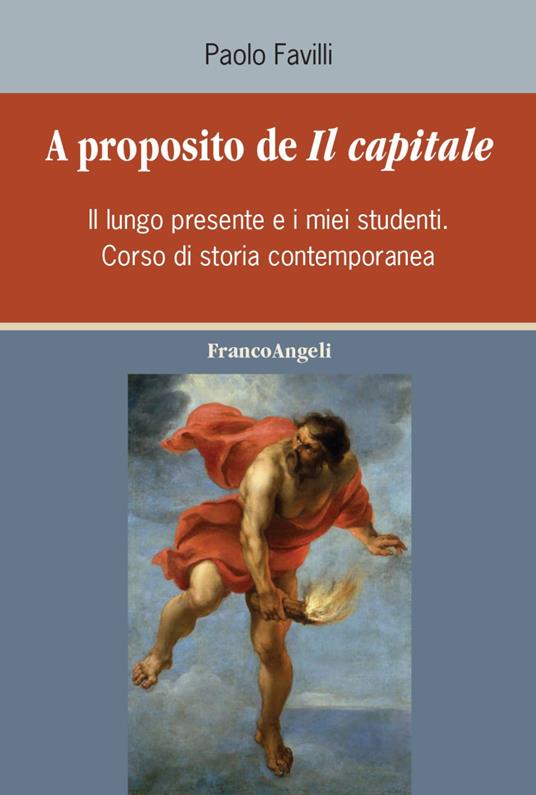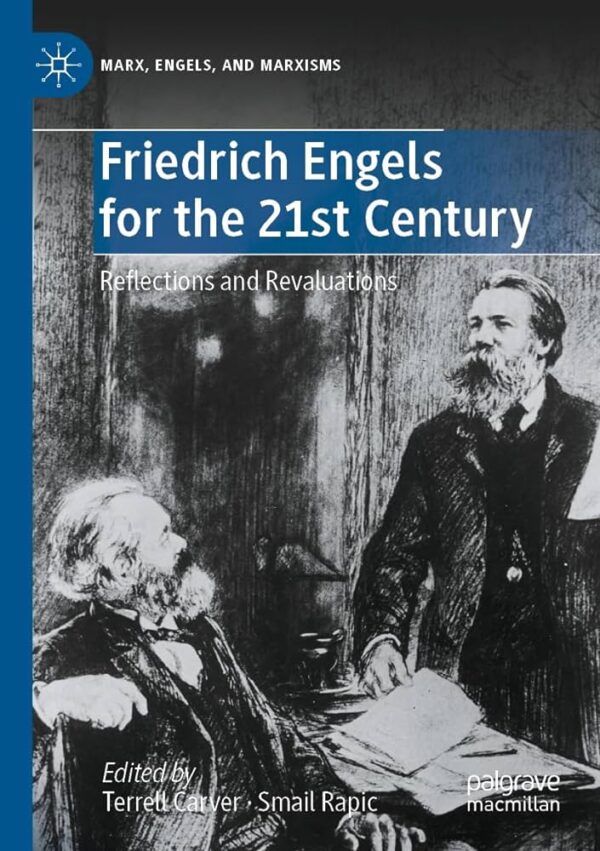Pagine
Condividi e segnala
Tag
- Althusser
- Antropologia
- Baumgarten
- Bourdieu
- Conceivability of Nothingness
- Conciliation
- corpo
- Derrida
- Dialectics
- Difference
- distinzione
- Europe
- Expression
- giudizio
- Grace
- Habitus
- Heidegger
- Hobbes
- Kant
- linguaggio
- Lyotard
- marxismo
- Medieval Aristotelianism
- Metaphysics
- Nature
- Negative
- Nichts
- nihil
- Nihilism
- nihil negativum
- nihil privativum
- Non-identical
- Nothing
- Nothingness
- onore
- politica
- postmoderno
- pratica
- riconoscimento
- Smith
- solitudine
- Sovranità
- Spinoza
- Thomas Aquinas
- Western Ontology
-
Articoli recenti
Link
Archivi categoria: NUMERO 14
Metabolismo ed ecologia. La frattura del ricambio materiale dall’ecomarxismo a Marx
Paolo Murrone
Università di Pisa (paolo.murrone@phd.unipi.it; ORCID: 0000-0001-8333-9453).
Ecology and Metabolism:The Metabolic Rift from Eco-Marxism to Marx
Abstract: In this essay, I will focus on some essential assumptions of the so-called metabolic rift theory, which sought to understand the Marxian concept of Stoffwechsel from an ecological perspective. In the first part, I will focus on the genesis of this Marxist current of ecology, dwelling in particular on the issue of Marx’s alleged productivism. Subsequently, I will shed some light on the Marxian notion of metabolism, attempting (a) to situate the concept within the … Continua a leggere
Pubblicato in Monografica, NUMERO 15
Commenti disabilitati su Metabolismo ed ecologia. La frattura del ricambio materiale dall’ecomarxismo a Marx
Michael Heinrich, La scienza del valore. La critica marxiana dell’economia politica tra rivoluzione scientifica e tradizione classica (Pgreco Edizioni, 2023)
Pubblicato in NUMERO 15, Recensioni e segnalazioni
Commenti disabilitati su Michael Heinrich, La scienza del valore. La critica marxiana dell’economia politica tra rivoluzione scientifica e tradizione classica (Pgreco Edizioni, 2023)
CONSECUTIO RERUM ANNO VII, N. 14 (2/2022-2023)
A partire da Gramsci.
Aspetti e problemi della questione meridionale oggi
a cura di Paolo Desogus e Marco Gatto
Pubblicato in Copertina, NUMERO 14
1 commento
Indice
Monografica
PAOLO DESOGUS & MARCO GATTO, Introduzione. Questione e questioni meridionali
GIUSEPPE COSPITO, La questione meridionale negli scritti gramsciani del periodo torinese e ordinovista
PAOLO DESOGUS, La questione meridionale di Gramsci dall’economico-corporativo all’etico-politico
ROBERTO EVANGELISTA, Fata Morgana nelle Coree. La questione meridionale tra miraggio e miracolo
MARCO GATTO, Per un universalismo senza restrizioni. Questione meridionale e conflitto sociale da Edward W. Said a Ernesto de Martino
GIACOMO TARASCIO, Tra margini e subalternità. Una chiave politica gramsciana per pensare il mezzogiorno
FRANCESCOMARIA TEDESCO, Il pensiero meridiano come mediterraneismo anti-popolare
Varia
ROBERTO FINELLI, The Thought of Ludwig Feuerbach as a Limit
… Continua a leggere
Pubblicato in Indice, NUMERO 14
Lascia un commento
Introduzione. Questione e questioni meridionali
Paolo Desogus & Marco Gatto
Paolo Desogus: Sorbonne Université (paolo.desogus@sorbonne-universite.fr; Orcid: 0009-0006-1803-4040);
Marco Gatto: Università della Calabria (marco.gatto@ unical.it; orcid: 0000-0002-5223-471X).
All’interno degli studi gramsciani e in particolare nelle più recenti ricerche si possono riconoscere due tendenze: la prima, riconducibile soprattutto all’ambito di ricerca italiano, si è proposta di storicizzare la riflessione meridionalistica di Gramsci e di ridefinirla nel contesto della prima metà del Novecento attraverso lo studio delle fonti, dei confronti intellettuali, della direzione politica del Pcd’I e degli stretti legami con gli esiti più avanzati della produzione carceraria; la seconda, facente capo al … Continua a leggere
Pubblicato in Monografica, NUMERO 14
Lascia un commento
La questione meridionale negli scritti gramsciani del periodo torinese e ordinovista
Giuseppe Cospito
Università degli Studi di Pavia (giuseppe.cospito@unipv.it; ORCID: 0000-0002-0978- 0467).
The Southern Question in Gramsci’s writings from the Turin and ordinovist periods
Abstract: This essay aims to demonstrate the relevance of the “Southern Question” from Gramsci’s early theory and politics onwards. Since his high school education in Sardinia, Gramsci was faced with the underdevelopment of his native region, which he believed could be overcome via political independence and autonomy. Yet, he soon realized the nation-wide dimension of this issue, rooted in the thousand-year old political division of the country, and in … Continua a leggere
Pubblicato in Monografica, NUMERO 14
Lascia un commento
La questione meridionale di Gramsci dall’economico-corporativo all’etico-politico
Paolo Desogus
Sorbonne Université (paolo.desogus@sorbonne-universite.fr; Orcid: 0009-0006-1803- 4040).
Gramsci’s Southern Question from the economic-corporative to the ethical-politic
Abstract: This essay analyzes Antonio Gramsci’s evolving perspective on the Southern Question from 1911 to 1926, the period of his arrest. It specifically scrutinizes both his writings and the various political developments that transformed Gramsci from a socialist activist into the foremost political leader of the Communist Party of Italy and a prominent figure within the Communist International. The main objective of this study is to shed light on a philosophical and political journey marked by theoretical … Continua a leggere
Pubblicato in Monografica, NUMERO 14
Lascia un commento
Fata Morgana nelle Coree. La questione meridionale tra miraggio e miracolo
Roberto Evangelista
Istituto per la Storia del Pensiero Filosofico e Scientifico Moderno, Consiglio Nazionale delle Ricerche (roberto.evangelista@ispf.cnr.it; ORCID: 0000-0003-0334-9462).
Fata morgana in the suburbans neighboroughs Coree. The Southern question between mirage and miracle.
Abstract: The essay aims to consider some aspects of the Southern question, starting from the situation of emigrants in Northern Italy in the 1950s. This work considers two very important texts (Milano, Corea. Inchiesta sugli immigrati, and Stato e sottosviluppo), which allow us to consider the economic aspects and political choices that determined the phenomenon of internal Italian … Continua a leggere
Pubblicato in Monografica, NUMERO 14
Lascia un commento
Per un universalismo senza restrizioni. Questione meridionale e conflitto sociale da Edward W. Said a Ernesto de Martino
Marco Gatto
Università della Calabria (marco.gatto@unical.it; orcid: 0000-0002-5223-471X).
An unrestricted universalism. Southern question and class struggle in Edward W. Said and Ernesto de Martino
Abstract: The article aims to set up a path of reflection capable of dialectically tightening the concepts of universalism, Orientalism, the Southern question and class conflict, considering the fundamental contribution of Edward W. Said and Ernesto de Martino, two authors who have so far, unjustly, not been juxtaposed.
Keywords: Universalism; Southern Question; Orientalism; Nation; Identity. … Continua a leggere
Pubblicato in Monografica, NUMERO 14
Lascia un commento
Tra margini e subalternità. Una chiave politica gramsciana per pensare il mezzogiorno
Giacomo Tarascio
Università degli Studi di Urbino “Carlo Bo” (giacomo.tarascio@uniurb.it; ORCID: 0009-0004-2898-7801).
Trough Margins and Subalternity. A Gramscian Political Key to Think about the South of Italy
Abstract: The idea of subaltern groups is one of the most notable Gramscian concepts that has become part of the global historical-political lexicon, and not only that: the work on the Southern Question has been integrated into the broader discourse of the Global South. If these new views, on the one hand, had the merit of spreading some of the key terms from Quaderni del carcere beyond … Continua a leggere
Pubblicato in Monografica, NUMERO 14
Lascia un commento
Il pensiero meridiano come mediterraneismo anti-popolare
Francescomaria Tedesco
Università degli Studi di Camerino (francescomaria.tedesco@unicam.it; ORCID: 0000- 0001-9577-8250).
The Meridian thought as anti-popular Mediterraneism
Abstract: About five years after the publication of my book Mediterraneismo. Il pensiero antimeridiano (Meltemi 2017), I still wonder whether it was necessary to publish such a text. This contribution is an attempt to formulate an answer to that question. An answer that, in my opinion, is affirmative. And it is so because not only are the traces of what I had defined in the book as Mediterraneanism of the first kind (of backwardness) still widespread; but … Continua a leggere
Pubblicato in Monografica, NUMERO 14
Lascia un commento
The Thought of Ludwig Feuerbach as a Limit to the Theoretical Development of Karl Marx
Roberto Finelli
Università degli Studi di Roma Tre (roberto.finelli@uniroma3.it; Orcid: 0000-0003-1444-4756)
Abstract: The purpose of this essay is to critique the traditional interpretation of Ludwig Feuerbach’s philosophy as belonging to the materialist and anti-idealist tradition. Instead, the author argues that underlying Feuerbach’s anthropology is a metaphysics of ‘Genus’ (Gattung in German) conceived as an organic and communitarian universality. Behind Feuerbach’s apparent materialism and sensualism lies a spiritualist doctrine of essence, according to which human beings participate in principle in a common life in which individuals integrate and add up their differences without conflict and opposition. … Continua a leggere
Pubblicato in NUMERO 14, Varia
Lascia un commento
On Willing Surrender as Virtuous Self-Constitution
Bennett Gilbert
Portland State University (bbg2@pdx.edu; Orcid: 0000-0001-8295-3216).
Abstract: Our cultural situation is to seek a moral form of self-constitution, rather than an ontological or epistemological foundation. Such a moral ground lies in the paradox of willing surrender of the will to do wrong or dysfunctional acts in order to enter temporally-extended processes of moral change. But the paradox of willing surrender of the will requires analysis. The propositional form of it cannot be sustained and must instead give way to willingness as an ongoing choice. The self-reflexivity of the will with which we accomplish … Continua a leggere
Pubblicato in NUMERO 14, Varia
Lascia un commento
La dimensione linguistico-cognitiva nella psicologia di Wilhelm Wundt
Maurizio Maione
Università degli Studi “Guglielmo Marconi” (maurizio.maione63@gmail.com; ORCID: 0009-0000-3337-7881).
The Linguistic-Cognitive Dimension in Wilhelm Wundt’s Psychology
Abstract: This essay is aimed at examining Wilhelm Wundt’s theoretical interest in the genesis and nature of human language according to the methodology of experimental psychology whose theoretical tools also are decisive for the understanding of some linguistic writings published since 1900. There are three points which I will focus on: 1) the procedural-relational nature of mental events; 2) the examination of the processes of volition (Entscheidung and Entschließung) and apperception and, finally, 3) the … Continua a leggere
Pubblicato in NUMERO 14, Varia
Lascia un commento
Spinoza contro la dittatura militare brasiliana
Homero Santiago
Universidade de São Paulo (USP), Brasile (homero@usp.br; ORCID: 0000-0002-0610- 9993).
Spinoza against the Brazilian military dictatorship
Abstract: In this paper we intend to study one component of the vast set of works dedicated to Spinoza by Brazilian philosopher Marilena Chaui, namely her doctoral thesis Introduction to the reading of Spinoza defended by Chaui in 1971 at the University of São Paulo. Even though it was elaborated during the French rediscovery of Spinoza in the 1960s, the thesis evokes less the libertarian slogans of Paris May 1968 than the dictatorship installed in … Continua a leggere
Pubblicato in NUMERO 14, Varia
Lascia un commento
“ Communisme des esprits ” Hölderlin avec saint Paul
Jean-Claude Bourdin
jclbourdin@gmail.com; Orcid: 0009-0001-2488-0319.
“Communism of spirits”. Hölderlin with Saint Paul
Abstract: The intention of this article is to identify what the short text attributed to Hölderlin might evoke in relation to the enigmatic title, which is not his own, “Communism of the spirits”. It will highlight Hölderlin’s ideas on community and show that the ‘communist’ passages in his writings are paraphrases of St Paul. Hölderlin argues that community is what we lack. His conception of community is based on an ontology of being as One and All immanent to individuals. It … Continua a leggere
Pubblicato in NUMERO 14, Varia
Lascia un commento
Paolo Favilli, A proposito del Capitale. Il lungo presente e i miei studenti. Corso di storia contemporanea (FrancoAngeli, 2021)
Sebastiano Taccola
Doi: 10.5281/zenodo.10284211
Pubblicato in NUMERO 14, Recensioni e segnalazioni
Lascia un commento
Friedrich Engels for the 21st Century. Reflections and Revaluations, a cura di T. Carver & S. Rapic, Cham: Palgrave Macmillan, 2022, XXV
Gabriele Borghese
Doi: 10.5281/zenodo.10284617
Pubblicato in NUMERO 14, Recensioni e segnalazioni
Lascia un commento


